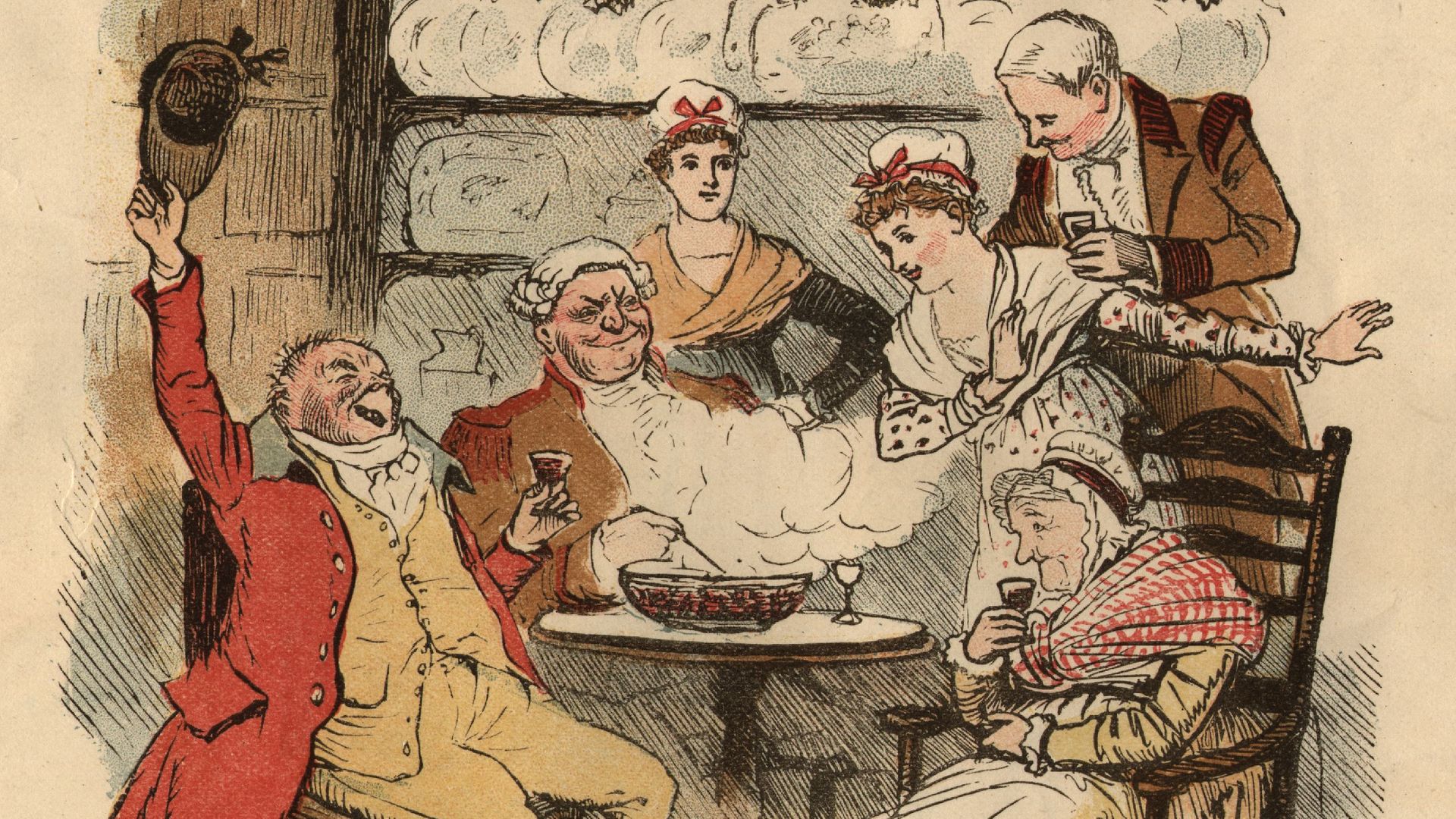
PETER TRUDGILL on a cheering Christmas tradition.
One of the best-loved spoof Christmas carols recorded by the Norfolk-based parody folk-duo the Kipper Family is called Arrest These Merry Gentlemen! Another song in the same vein (from their album The Ever Decreasing Circle) is the Trunch Wassail Song, a folk tune purportedly native to the North Norfolk village of Trunch, which is near Cromer.
The Kippers no doubt selected Trunch for this honour because the name is a rather unusual sounding one. In fact, Trunch has the distinction, in very Anglo-Saxon East Anglia, of being a place-name which is probably Celtic in origin: it appears to come from ancient Brittonic trum kēd, ‘promontory woodland’, where kēd corresponds to modern Welsh coed, ‘wood’.
The chorus of the Trunch Wassail Song, as performed in the Kippers’ glorious Norfolk dialect, begins: “Wassail, wassail? I’ll tell you whass ale. That come in bottles, brown and pale!”
Bottles of brown and pale ale were indeed to be found in plentiful supply in East Anglian pubs in my youth, but of course this has nothing whatsoever to do with the act of wassailing at Christmas. The Kippers are simply making humorous use of the fact that What’s ale?, at least in the Norfolk dialect, can be pronounced in exactly the same way as wassail.
There actually is a connection between ale and wassail, however, even if not a truly a linguistic one. In Old English, wes hal – an exhortation literally meaning ‘Be in good health!’ – was commonly used as a greeting. By the early mediaeval period, it was also being used as a toast to drink to a person’s health. The mediaeval English form was wes hail, and in the Old Norse which was spoken over very large areas of England and Scotland at that time it was ves heill. Old Norse may well have been the original source of the usage of the phrase as a drinking toast, as opposed to just a greeting.
Wes and ves were imperative forms of the verb to be – grammar enthusiasts will know that an imperative is the form of a verb used to give instructions or orders, such as Stop! Go away! Come in! Be good!. The adjective hail/heill meant ‘hale, whole, sound, well’ and was related to heal, health and healthy.
An abbreviated form of the greeting, Hail!, survived into more recent times, and is still known to us as a historic, poetic or rhetorical salutation, most often indicating some kind of great respect, as in Hail Caesar! or Hail Mary! In Shakespeare’s play Hamlet we find “Haile to your Lordship”; and Milton’s epic poem Paradise Lost contains the sentence “Hail holy light!”.
The correct response to the drinking toast Wes hail! – Ves heill! was Drink hail! It was reported that on the night before the Battle of Hastings, the English troops spent a great deal of time drinking, and there were “many cries of weissel and drincheheil”. In the 13th century, it was also reported that students from England attending the Sorbonne University in Paris were nice fellows but “too much addicted to wessail and dringail”. Some things never change.
The originally two-word toast Wes hail! had by then become a single noun wassail. (This process of univerbation, as it is technically known, is a common linguistic development: week end is now weekend; and blackbird obviously comes from black bird.)
Wassail then became the label for the act of drinking a toast itself; and eventually it was also extended to refer to any alcoholic drink imbibed when drinking to a person’s health. In particular, the word was applied to the mediaeval spiced ale which was typically consumed at celebrations on Christmas Eve and Twelfth Night.
So, if it was “bottles, brown and pale” which were being used to drink a person’s health, then that would complete the Trunch Wassail Song circle of ale and wassail.










